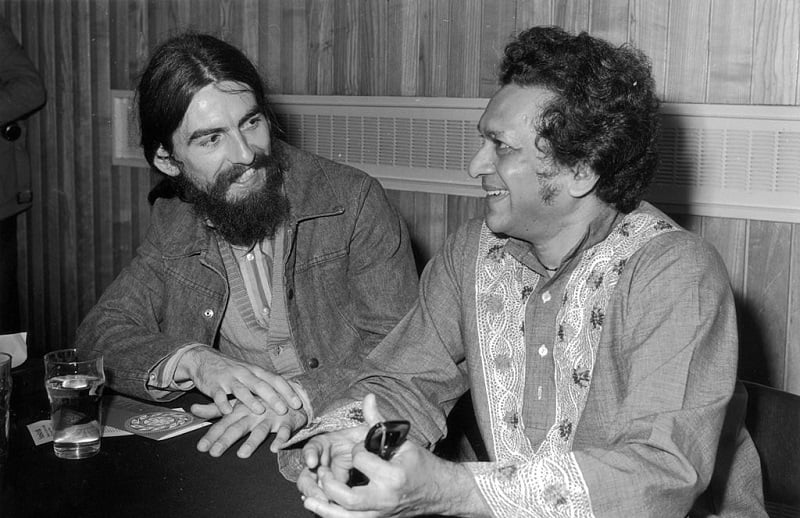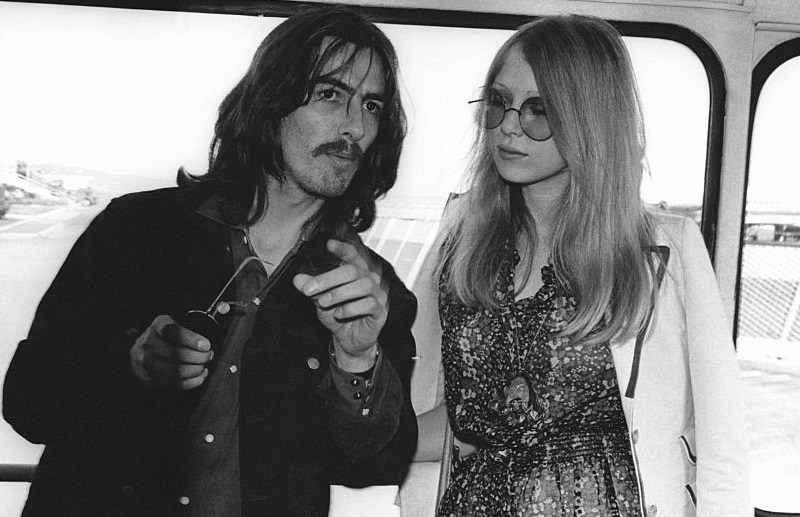Why George Harrison Was So Nervous About Releasing His 1st Post-Beatles Single
When The Beatles went their separate ways in 1970, fans couldn’t wait to see how their solo projects would turn out. In the case of Paul McCartney’s debut effort, they didn’t have to wait long. That’s because Paul released his record while simultaneously announcing he’d quit the Fab Four.
But McCartney didn’t exactly set the world on fire. Critics were underwhelmed, and Paul’s bandmates were, too. John Lennon described it as “rubbish,” while George Harrison simply called it “disappointing.”
John Lennon/Plastic Ono Band got almost the opposite reception. While it didn’t sell as well as Paul’s effort, critics raved about John’s songwriting and stunning vocal performance. But neither Paul nor John had come up with one of those trademark No. 1 singles.
George did the honors on that front when he released “My Sweet Lord” from his late ’70 All Things Must Pass album. (Both the single and record topped the charts.) But George had been very hesitant about releasing what became his most recognizable — and best-selling — song he’d ever record.
George feared people would hate him for his overt religious message

In George Harrison Living in the Material World (2011), the audience hears George speak about his apprehension about releasing “My Sweet Lord.” At the time, it was to be his first single after The Beatles, and he wasn’t sure how listeners would respond.
Initially, he planned to release no singles from the album. However, after pressure from his manager and Apple, he agreed to put out the record producer Phil Spector called the obvious hit. But George was worried it was “too religious.”
“There’s gonna be a lot of people who really hate me,” he recalled thinking. “Because people fear the unknown. The point is, I was sticking my neck out on the chopping block.” To Spector, it didn’t matter in the slightest because George’s song was so good.
But George might have been underestimating himself. The way he wrote the song, you don’t hear the first overtly religious bit (“Hallelujah”) until late in the fourth section of lyrics. By then, listeners had long since been swept up by wall of acoustic guitars and George’s brilliant slide.
It quickly became clear that it would be a smash hit on radio stations around the world.
Music fans had almost nothing but praise for ‘My Sweet Lord’

It didn’t long for George to realize he was off about the reception “My Sweet Lord” might receive. After its November 23 release, it passed 1 million copies sold by the middle of December. The day after Christmas, it hit No. 1 on the Billboard charts — and stayed there for a month.
By the end of the ’70s, “My Sweet Lord” had sold over 5 million copies, and that number has more than doubled since. Clearly, George’s fans — and music fans as a whole — had no problem with the song’s subject matter.
As George said, he eased listeners into the Eastern chants. At first, they were singing along to something they’d heard in Christian masses. Then the “Hallelujah” became “Hare Krishna,” only it sounded like the same prayer.
In the latter part of the song and outro, the chants become more and more exotic to Western ears. But by then, listeners had agreed to love the song on its own terms long ago.
Also see: Who The Beatles Were Trying to Outdo When They Recorded ‘Helter Skelter’


